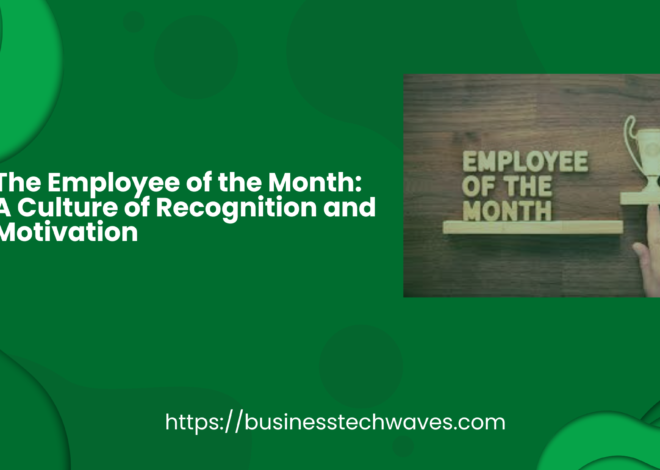
Perks and Workplace: An Evolving Dynamic in Modern Employment 2024
Perks and work in today’s rapidly changing work environment, the concept of employment is no longer just about a paycheck. Workers, particularly in competitive industries, now weigh the perks and benefits offered by employers as heavily as they consider salaries. The shift from traditional work setups, accelerated by technological advancements and changing societal expectations, has placed a spotlight on perks and work as crucial determinants of job satisfaction, work-life balance, and even productivity. From flexible work hours to comprehensive health packages and wellness programs, the range of perks has grown to match the diverse needs of modern workers.
Defining Perks and Work
Perks and work, sometimes referred to as employee benefits or fringe benefits, go beyond basic compensation to include additional rewards that employers offer to make jobs more attractive. These perks can be financial, such as bonuses and stock options, or non-financial, like gym memberships, professional development opportunities, or remote work flexibility.
Perks and work historically, perks were seen as “extras,” often reserved for senior staff or unique positions. However, today they are increasingly seen as fundamental to creating a healthy, efficient, and motivated workforce. Employers realize that offering the right perks can attract top talent, reduce employee turnover, and foster a positive company culture.
The Evolution of Perks and Work
Perks and work have evolved in tandem with shifts in the economy, technological advancements, and changing societal values. A century ago, perks were limited primarily to health benefits and retirement plans, largely catering to the financial security of employees. The post-war boom and the expansion of the middle class led to the rise of other benefits such as paid vacation days, profit-sharing plans, and more sophisticated healthcare packages.
Perks and work the dot-com boom in the 1990s signaled a more dramatic transformation in workplace perks. Tech giants like Google, Microsoft, and Facebook became renowned for offering perks such as free meals, massages, on-site laundry services, and even gaming areas. These companies shifted the paradigm, viewing perks not just as benefits but as essential components of their workplace culture. The approach was simple: make the workplace more enjoyable and employees will be more productive, innovative, and loyal.
Perks and work today, the gig economy, the rise of remote work, and increasing awareness of mental health issues have further expanded the definition of perks. Flexibility has emerged as a significant perk, with remote work and hybrid working models now highly valued. Likewise, wellness programs that address both physical and mental health are increasingly seen as critical perks in a world where burnout and stress are on the rise.
Types of Perks and Work
Perks and work are diverse, reflecting the wide-ranging needs and desires of the modern workforce. Some of the most common types include:
1. Health and Wellness Benefits
Perks and work this is one of the most traditional forms of perks but continues to be one of the most important. Health insurance, dental and vision plans, life insurance, and access to mental health professionals are seen as basic requirements in many sectors. Beyond these, many companies now offer wellness programs that include fitness memberships, mindfulness training, and stress management workshops.
2. Flexible Work Hours
Perks and work a defining perk of the 21st century, flexibility in work hours is highly sought after, particularly as employees seek better work-life balance. Flexible working arrangements allow employees to tailor their work schedules around personal needs, reducing stress and improving productivity. This may involve staggered hours, compressed workweeks, or even the ability to work from home.
3. Remote Work
The COVID-19 pandemic accelerated the adoption of remote work, turning what was once a perk into a necessity for many businesses. Today, many workers prefer or even expect remote work options as a standard part of employment. For employees, it offers the ability to manage personal responsibilities more easily, while also cutting out commute time and expenses. For employers, it widens the talent pool, allowing them to hire from a global workforce.
4. Professional Development Opportunities
Investing in employees’ skills has become a win-win for both employers and staff. Offering professional development opportunities, such as workshops, online courses, certifications, or even financial support for higher education, not only enhances employees’ expertise but also contributes to overall company growth. Employees feel valued and more committed when they see opportunities for personal growth within their company.
5. Financial Perks
In addition to salary, employees may receive other financial incentives such as performance-based bonuses, stock options, retirement contributions, or profit-sharing plans. These perks are particularly appealing for those looking to build long-term financial security. Other financial perks might include student loan repayment assistance or childcare subsidies, both of which can alleviate significant financial burdens.
6. Company Culture and Social Perks
Perks and work culture is increasingly a factor that employees consider when choosing or staying in a job. Companies that foster positive, inclusive, and dynamic environments often see higher levels of employee satisfaction. Social perks, like team-building retreats, happy hours, or company-sponsored trips, help create a sense of community within the workplace. For many employees, working in a supportive environment is just as important as compensation.
7. Paid Time Off (PTO) and Unlimited Vacation
Many companies are moving away from rigid vacation structures and adopting flexible or unlimited vacation policies. Employees can take as much time off as they need, as long as they fulfill their work responsibilities. This trust-based system encourages employees to take breaks when needed without worrying about strict limits, improving their well-being and overall productivity.
The Impact of Perks on Employee Satisfaction and Retention
The importance of perks and work cannot be overstated in terms of their impact on employee satisfaction, retention, and overall company success. Numerous studies have shown a strong link between comprehensive perks and employee retention. For example, employees who feel that their companies invest in their well-being and personal growth are more likely to remain loyal to the organization. They are also more engaged, which translates into better performance and lower absenteeism.
Similarly, perks that cater to employees’ specific needs — such as work flexibility, health benefits, or professional development — tend to reduce job-related stress and burnout. In turn, this enhances productivity. Moreover, companies that offer competitive perks often enjoy a better public image, helping them attract top-tier talent and differentiate themselves from competitors.
Perks and the Future of Work
Perks and work as we look toward the future of work, the role of perks is likely to grow even more significant. With technological advancements, particularly in artificial intelligence (AI) and automation, the nature of work itself is evolving. Employees will increasingly value perks that offer them flexibility, continuous learning opportunities, and support for mental and physical well-being.
Moreover, generational shifts will influence the types of perks offered. Millennials and Gen Z, who will soon make up the majority of the workforce, prioritize work-life balance, mental health, and professional development more than previous generations. They are more likely to seek out employers who offer perks that align with these values, including mental health support, flexibility, and opportunities for personal growth.
The Role of Equity and Inclusion in Perks
As diversity, equity, and inclusion (DEI) become central topics in the workplace, companies are being challenged to ensure that their perks are inclusive and equitable. Perks must cater to a diverse range of employees, considering factors such as gender, age, family structure, and cultural background.
For instance, offering parental leave that includes both mothers and fathers, or providing wellness programs that cater to employees of all physical abilities and backgrounds, can significantly boost employee satisfaction and create a more inclusive work environment. Companies that embrace DEI in their perks structure are better positioned to attract a diverse workforce, which in turn fosters innovation and creativity.
Conclusion
The role of perks in the modern workplace has expanded dramatically, reflecting shifts in employee expectations, societal values, and technological advancements. While compensation remains important, employees increasingly value perks that support their personal and professional lives, from flexible work arrangements to wellness programs and opportunities for continuous learning.
For companies, offering competitive and meaningful perks is no longer just a bonus; it is a strategic tool for attracting and retaining top talent, fostering a positive work environment, and driving long-term success. As the nature of work continues to evolve, so too will the types of perks that employees seek, making this an ever-important consideration for employers looking to stay ahead in the competitive labor market.


